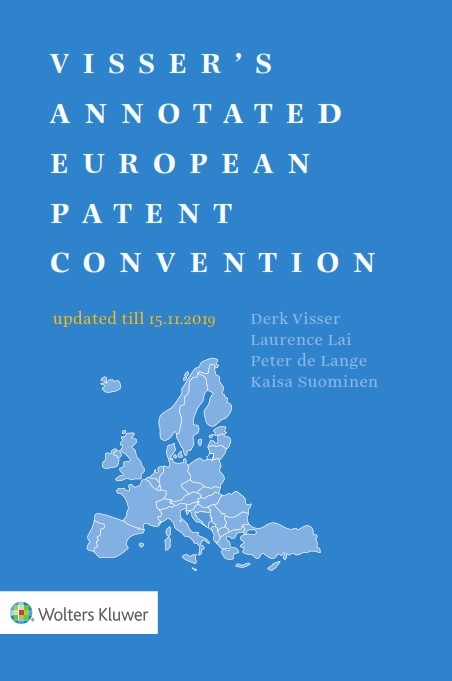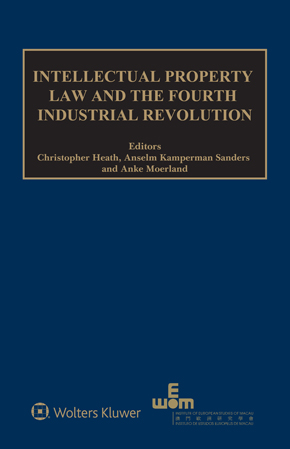Today (20 January 2021) seems to be a perfect day to celebrate democracy and the rule of law.
I will therefore not keep you up for too long, but just wanted to make a short personal comment and a call to all of us discussing the UPCA and the latest events in Germany regarding the ratification process and the two new constitutional complaints. I am perfectly aware that this is perhaps the most controversial current topic in the European IP Community, with passions running high both among the supporters and the opposers of the UPC Agreement. There is a wide spectrum of voices, one part arguing that there is absolutely no need of any Unified Patent Court in Europe, another supporting the view that a supranational Patent Court may be desirable in principle but take issue with its implementation currently provided in the UPCA and a third vocal group that seems to be prepared to happily welcome any kind of UPC, be it with or without the UK, Poland, Spain, Hungary etc. Fortunately, we have freedom of speech in Europe, and everybody is entitled to his or her own views and to make them known to others.
What I would urge people, though, is some degree of rhetoric deescalation when we are discussing this matter.
Some comments on this and other IP blogs seem to be trying to paint the Federal Constitutional Court’s decision to ask for another deferral of the UPCA ratification in the darkest possible colors, as if it were an assault on democracy itself. On the respected JuVe blog, an opinion has just appeared under the headline: “A drawn-out UPC process would damage democracy”. It urges the FCC to decide on this matter quickly.
Why the haste? The article provides essentially two reasons. The first one is, however, hmm… how shall I put it politely? … hearsay:
This is because, from what JUVE Patent hears from sources close to those involved, the complaints contain hardly any new aspects. No-one other than the complainants, the court and the other constitutional bodies have yet seen the complaints – not even the JUVE Patent editorial team.
So somebody has seen the complaints and seems to be of the view that they “hardly contain any new aspects”. Fair enough, everybody is entitled to their views, but should the Federal Constitutional Court really prioritize one case over another for such a reason? If the reasoning of these “sources” was so compelling, why then did the FCC not throw out the complaints immediately?
The second reason appears more forceful to me. It is “because the German parliament has already deliberated and voted on the laws twice. Only very few members of the parliament criticised or opposed the UPC during the debates in the Bundestag or Bundesrat.” This is certainly true, at least if the term “deliberated” and “debates” are given the broadest possible interpretation (I watched the debate, but this is for another day…). Nonetheless, even the most thorough deliberation and informed debate does not exclude that the final bill violates the constitution, and the Federal Constitutional Court is there to assess exactly this. This is the Rule of Law.
While I agree with Mr Klos on JuVe that it would be highly desirable that the FCC decide on these complaints as soon as possible, I would certainly not go as far to urge the Court to prioritize this case over others – there is a world outside patents and I lack the insight into the bigger picture to determine what is the most urgent matter on the table. Besides, as I repeatedly wrote, there is a non-negligible possibility that the entire system of judicial review in EP patent cases may need to be overhauled due to the four other constitutional complaints the earliest of which was filed in 2010 (!).
But in any case, I would be extremely careful with arguing my case using language like this:
Ultimately, at a constitutional level, the will of the people still comes first. The majority in both chambers was overwhelming. Furthermore, a majority of the German business community remains in favour of the UPC.
This is because it risks that the Federal Constitutional Court will, as the next step, be accused of acting against the “will of the people”, if it does not decide as quickly as some people want.
A pillar of our democratic state is the Rule of Law, which requires and presupposes independent judges. This can at times be inconvenient and can sometimes take painfully long. But if and when our highest Court were accused of acting against the “will of the people” (and against the “majority of the business community”, if the FCC came to the “wrong” conclusion, horribile dictu) or when the speed of a decision on the UPC is stylized as “damaging democracy”, we are entering dangerous territory and start using the language of those whose very intent is to undermine these valued democratic institutions.
So let’s celebrate democracy today. Whether or not the UPC will come, and whenever, it will not be the end of democracy in Europe.
More from our authors:

|
Vissers Annotated European Patent Convention by Derk Visser, Laurence Lai, Peter de Lange, Kaisa Suominen € 105 |

|
Handbook of Blockchain Law: A Guide to Understanding and Resolving the Legal Challenges of Blockchain Technology by Matthias Artzt, Thomas Richter € 181 |

|
Patent Protection for Second Medical Uses, Second Edition by Jochen Bühling € 218 |

|
Intellectual Property Law and the Fourth Industrial Revolution by Christopher Heath € 135 |